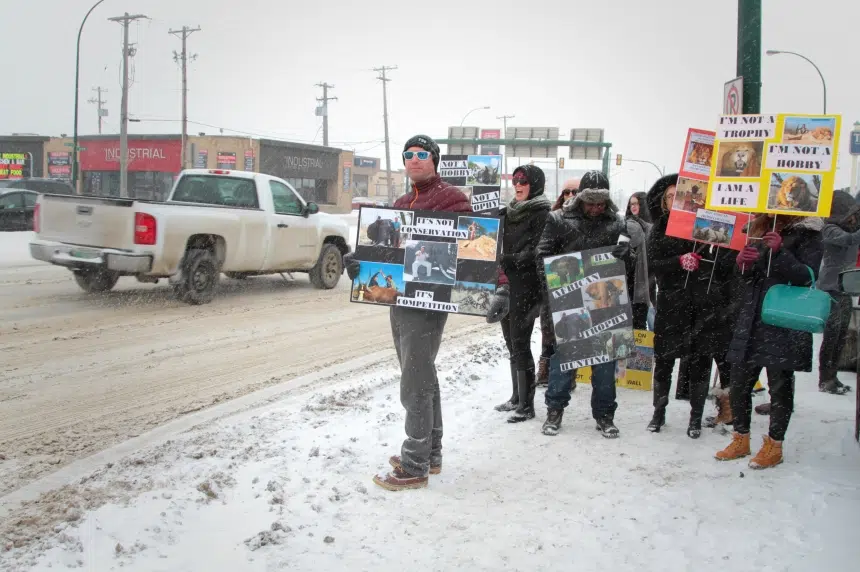The Saskatoon hunting safari event that spurred two online petitions a venue change opened its doors Saturday to weekend protests.
Despite calls to cancel, the African Events Canada safari expo went ahead as planned at the Saskatoon Travelodge this weekend.
Hunting enthusiasts who ventured out in the snow to learn how to connect with southern Africa safaris at the expo’s 25 different exhibitors did not go unnoticed. A group of around a dozen protesters waved signs, chanted and yelled ‘shame’ at expo-goers as they entered.
“(Trophy hunting) is unethical, it’s unsustainable, there’s no purpose for it and there’s no place for it in today’s society,” protester Emily Pickett said.
The expo was originally scheduled to take place at the Saskatoon Inn, but when an online petition garnered 3,500 signatures, the inn canceled the booking. African Events rescheduled with the Travelodge, which did not cancel when a second petition of 11,000 signatories called for them to follow in the footsteps of the Saskatoon Inn.
“It’s nice to see the management of the Travelodge had the backbone to stand up and say we’ll be happy to host your event,” expo organizer Birgit Johnstone said.
While not surprised by the venue change, Pickett said she had hoped other venues would have rejected the expo.
“When African animals are already facing extreme decline due to habitat loss and poaching, it’s just absolutely insane that we would target for simply a trophy on a wall.”
However, Johnstone said hunting plays an active role in conservation, because without a healthy population of animals, hunting safari businesses wouldn’t be able to support themselves. She said the foreign money also helps the local economy.
Ray Kemp, owner of Lalapa Safaris in the eastern cape of South Africa said the protesters have a narrow perspective on trophy hunting and are lacking the bigger picture.
He said he only hunts animals that are “past their prime” and are no longer breeding because a younger male has taken over. He reflected back on when he took over his family’s 145-year-old ranch and the wild animal population was around 150.
“Because the monies come in from trophy hunting and just the state that we take out old animals … the population on the same ranch has grown to 1,000 animals,” he said.
He said hunters are entitled to the skin and horns of an animal while the rest is shared between Kemp, his workers and the surrounding community.







